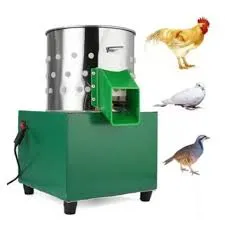Top Manufacturers of Poultry Cages for Efficient Livestock Farming Solutions
Dec . 13, 2024 17:28 Back to list
Top Manufacturers of Poultry Cages for Efficient Livestock Farming Solutions
The Thriving Industry of Poultry Cage Manufacturers
In the modern agricultural landscape, the demand for efficient and humane poultry farming practices has significantly increased. As a consequence, poultry cage manufacturers have emerged as crucial players in enhancing productivity while ensuring the welfare of the birds. This article will explore the current trends, innovations, and challenges faced by poultry cage manufacturers.
Poultry farming is a pivotal part of the global agricultural sector, providing millions of tons of meat and eggs annually. The rise in consumer demand for poultry products has necessitated innovative solutions for farmers. One significant innovation has been the development of advanced poultry cages designed to optimize space, increase productivity, and improve bird welfare. Modern cages are engineered to accommodate the natural behaviors of poultry while ensuring that farmers can manage their operations effectively.
Advanced Cage Designs
The design of poultry cages has evolved dramatically over the years. Early models were often simplistic and did not prioritize animal welfare. However, contemporary designs incorporate features that allow for better ventilation, efficient feeding, and automated waste management systems. For instance, multi-tier cages utilize vertical space, enabling farmers to house more birds within a limited area. These designs not only maximize space but also make the operation more cost-effective.
Moreover, many manufacturers are now focusing on environmentally sustainable practices. They are adopting materials that reduce the carbon footprint and enhance the durability of the cages. Innovations such as plastic-coated wire and recycled materials are gaining popularity. These materials not only extend the lifespan of the cages but also minimize waste, aligning with global sustainability initiatives.
Automation and Technology
The integration of technology in poultry farming has revolutionized the industry. Poultry cage manufacturers are increasingly incorporating automation into their products. For example, automated feeding systems ensure that birds receive the right amount of feed at the right times, which can significantly enhance growth rates and overall health. Additionally, automated monitoring systems can track the health of the poultry, alerting farmers to any potential issues before they escalate.
poultry cages manufacturers

Smart technology, including sensors and internet connectivity, allows farmers to monitor conditions in real-time. This technological advancement helps in maintaining optimal climate conditions within the cages, ensuring that birds are kept in a healthy and stress-free environment. The trend of smart farming is transforming poultry production, allowing for data-driven decision-making that can lead to increased efficiency and reduced costs.
Challenges in the Industry
Despite the advancements and opportunities within the poultry cage manufacturing industry, several challenges remain. Regulatory requirements regarding animal welfare continue to evolve, compelling manufacturers to constantly adapt their designs. In many regions, laws are being enacted to ensure that poultry has enough space to move around, which has led to a demand for larger and more complex cage systems. Manufacturers must strike a balance between adhering to these regulations and ensuring that their solutions are economically viable for farmers.
Additionally, the poultry industry faces criticism from animal rights groups advocating for free-range practices. This has prompted many cage manufacturers to invest in alternative systems, such as aviary systems, which allow for more natural living conditions for birds. While such systems may offer better animal welfare outcomes, they also come with higher costs and require more space, which can be a barrier for small-scale farmers.
The Future of Poultry Cage Manufacturing
Looking ahead, the poultry cage manufacturing industry is poised for continued growth and innovation. As consumer preferences shift towards sustainable and humane farming practices, manufacturers will need to respond by developing new systems that meet these demands. The future will likely see even greater integration of technology, with advancements in artificial intelligence and machine learning playing a role in optimizing poultry farming.
In conclusion, poultry cage manufacturers play a vital role in addressing the challenges and demands of modern poultry farming. Through innovative designs, automation, and a focus on sustainability, the industry is not only enhancing productivity but also contributing to the welfare of poultry. As the global demand for poultry products continues to rise, these manufacturers will be essential in shaping the future of this vital sector.
-
Automatic Feeding Line System-Pan Feeder Nipple Drinker|Anping County Yize Metal Products Co., Ltd.
NewsJul.29,2025
-
Hot Sale 24 & 18 Door Rabbit Cages - Premium Breeding Solutions
NewsJul.25,2025
-
Automatic Feeding Line System Pan Feeder Nipple Drinker - Anping County Yize Metal Products Co., Ltd.
NewsJul.21,2025
-
Automatic Feeding Line System Pan Feeder Nipple Drinker - Anping County Yize Metal Products Co., Ltd.
NewsJul.21,2025
-
Automatic Feeding Line System - Anping Yize | Precision & Nipple
NewsJul.21,2025
-
Automatic Feeding Line System - Anping Yize | Precision & Nipple
NewsJul.21,2025






